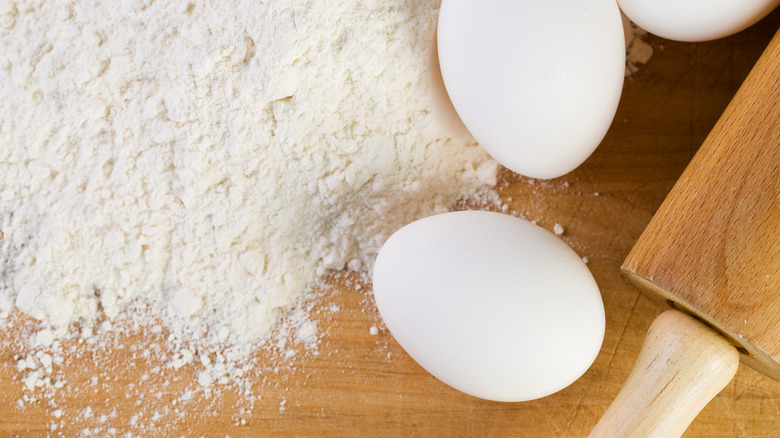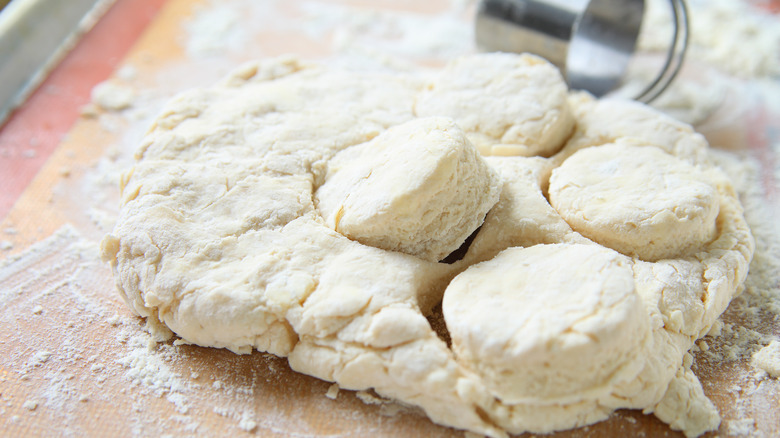The Reason You Shouldn't Bake With Expired Self-Rising Flour
Expiration dates: Some view them as a law and others view them as a challenge. Most people view expiration dates on a spectrum: Things that go in the fridge, like dairy, eggs, and raw meat, have hard expiration dates, while things that go in the pantry, like spices, canned goods, and vinegar, have soft expiration dates. After all, the consequences of eating a can of expired meat versus a slice of expired raw beef are drastically different.
But for bakers, pantry expiration dates carry a different kind of weight. Much of baking is beholden to chemical reactions, relying on yeast, baking powder, baking soda, and other leavening ingredients to react to stimuli and create air bubbles. These ingredients lose their ability to react over time, stymying the literal growth of your baked goods. So bakers need to take their expiration dates seriously.
This isn't much of an issue with ingredients like all-purpose flour or granulated sugar — they remain effective baking ingredients as long as they're kept cool and dry, so you can go a few months past their use-by date. With most specialty flours, like oat, nut, or whole grain flour, your main concern with expiry dates is that the unrefined flour will go rancid, ruining the taste of your baking.
Self-rising flour won't suffer from this problem of taste, but it also has a serious expiration deadline — and bakers need to keep an eye on it for the same reason they need to monitor their chemical leavening agents.
It defeats the purpose
What sets this flour apart from other flour? Self-rising flour contains a little something extra: baking powder. A staple ingredient in the South, self-rising flour is often used to make classic biscuits, cutting out the added step of sifting and mixing together the chemical leavening and all-purpose flour. Salt is also occasionally present in the mix for even further all-in-one convenience.
But what makes this flour so special is also what makes it so perishable. The baking powder becomes inactive over time (conservatively two years after manufacturing), and the use-by date on the bag of flour is taking this diminished potency into account. With this in mind, bakers have to take self-rising flour's best-by-date more seriously than that of all-purpose flour.
Of course, you could still use this old flour (assuming you are past the date by a couple of months, not years) as the bulk of the ingredient, the refined flour, will still work well in the recipe. Just don't count on that embedded baking powder to give your biscuits their signature fluffy height. You can make up for this by adding a little fresh baking powder to the mix, much like you would if you were using all-purpose flour. But at this point, you're defeating the purpose and convenience of self-rising flour.
When it comes to your self-rising flour, skip being thrifty and grab a fresh bag at the store.

